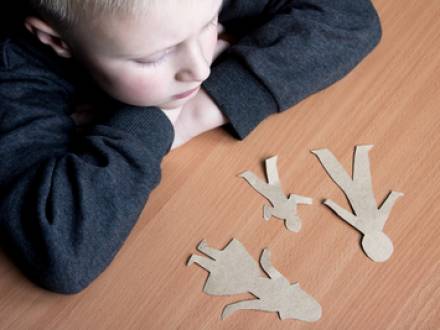Recent Blog Posts
Splitting Up the Holidays with Your Ex
 There are so many logistics to figure out after a divorce, including where children will spend holidays. The holidays are supposed to be joyful, but for divorced parents, they can bring stress instead.
There are so many logistics to figure out after a divorce, including where children will spend holidays. The holidays are supposed to be joyful, but for divorced parents, they can bring stress instead.
If you are navigating holiday parenting time in 2026, here are a few suggestions to help you create a holiday schedule that keeps your child's needs first. Our Kane County family law attorney is always ready to step in if extra help is needed.
Do I Have to Give My Ex Holidays with Our Kids?
Under Illinois law 750 ILCS 5/602.7, parenting plans must give specific details about holidays, school breaks, and special occasions. Courts expect parents to clearly define these times to avoid fights.
Holiday parenting time usually takes priority over your regular parenting schedule. If the holiday schedule gives that day to the other parent, the holiday schedule wins even if your regular schedule says your child would be with you.
What is a Premarital Agreement, and Why Are They Important?
 Many couples say that their wedding day was one of the happiest days of their lives. This happiness can be traced back to the fact that many months and sometimes years go into planning a wedding down to the smallest detail. However, planning for a wedding and marriage are two entirely different things.
Many couples say that their wedding day was one of the happiest days of their lives. This happiness can be traced back to the fact that many months and sometimes years go into planning a wedding down to the smallest detail. However, planning for a wedding and marriage are two entirely different things.
It is becoming increasingly more common for couples to negotiate and sign a premarital agreement, otherwise known as a prenup. These agreements are invaluable tools that spell out how a couple will handle debts, assets, and other financial issues if they decide at some point to get divorced.
While some find these agreements to be unromantic, that is not the intention. If you and your partner are considering marriage, it would be wise to consult with a lawyer who has experience guiding couples through discussions about their financial future. At the Law Office of Van A. Larson, P.C., our attorney can confidently draft and review a prenup on your behalf, drawing on decades of legal experience.
Can You Update or Cancel a Prenup in Illinois?
 Premarital agreements, also known as prenuptial agreements or prenups, are not always set in stone. Life changes, and what made sense before marriage might not reflect your current circumstances. Illinois law allows you to modify or revoke a prenup, but only under certain conditions. Working with an experienced Kane County, IL premarital agreement lawyer ensures that your prenup is enforceable in court or ruled out as no longer legally binding, depending on the situation.
Premarital agreements, also known as prenuptial agreements or prenups, are not always set in stone. Life changes, and what made sense before marriage might not reflect your current circumstances. Illinois law allows you to modify or revoke a prenup, but only under certain conditions. Working with an experienced Kane County, IL premarital agreement lawyer ensures that your prenup is enforceable in court or ruled out as no longer legally binding, depending on the situation.
Can You Update a Prenup After Marriage in Illinois?
Under the Illinois Uniform Premarital Agreement Act, a prenup can be amended or revoked only through a written agreement signed by both spouses. Verbal changes or informal promises will not hold up in court. Couples often choose to update their prenup when significant life changes occur. Some common reasons to revise your prenup include:
Can I Get Paid Back for Child Support If I Was a Victim of Paternity Fraud?
 Imagine that you and your wife had a child early in your marriage. Years later, after your divorce, you have shared custody and paid child support without question — until one day, during an argument, she says, "You are not his real father." The emotional shock of such a statement can be devastating. Once the initial disbelief fades, you may wonder if your ex could be forced to repay the child support you have faithfully provided.
Imagine that you and your wife had a child early in your marriage. Years later, after your divorce, you have shared custody and paid child support without question — until one day, during an argument, she says, "You are not his real father." The emotional shock of such a statement can be devastating. Once the initial disbelief fades, you may wonder if your ex could be forced to repay the child support you have faithfully provided.
Under the Illinois Parentage Act, disestablishing paternity can end future support, but it rarely results in repayment for past child support payments. Speaking to a knowledgeable Batavia, IL child support attorney is a crucial step in determining what you need to do next.
How Much Child Support Will I Pay if We Get Divorced?
 For parents in Illinois who are thinking about divorce, one of the most common questions is: How much child support will I owe? The answer depends on several factors that the court carefully considers. Understanding these rules can help you prepare for what lies ahead and avoid surprises during your divorce.
For parents in Illinois who are thinking about divorce, one of the most common questions is: How much child support will I owe? The answer depends on several factors that the court carefully considers. Understanding these rules can help you prepare for what lies ahead and avoid surprises during your divorce.
At Van A. Larson, P.C., our Batavia child support lawyer offers free consultations to help parents make sense of Illinois’ support guidelines. With years of experience handling cases in Kane County courts, we can explain how the law applies to your situation and fight for fair support payments.
How Is Child Support Calculated in Illinois?
Illinois uses what is called an "income shares" model to set child support payments. This means the court looks at both parents’ incomes and calculates how much of the child’s financial needs each parent should cover. The idea is that children should receive the same proportion of their parents’ combined income that they would have if the parents were still living together.
Five Things to Do if You’re Thinking About Getting a Divorce
 Deciding to end a marriage is not just one decision, but the accumulation of many small decisions that end in a filing. It can take months or even years of thought before you feel ready to take that step. If you are considering divorce in Illinois, taking certain actions early can make the process smoother and protect your future.
Deciding to end a marriage is not just one decision, but the accumulation of many small decisions that end in a filing. It can take months or even years of thought before you feel ready to take that step. If you are considering divorce in Illinois, taking certain actions early can make the process smoother and protect your future.
Attorney Van A. Larson has nearly 40 years of legal experience and is committed to giving every client the personal attention they need. If you are unsure whether you are ready to take the next step, schedule a consultation and learn more about your options. Our Batavia, IL divorce attorney is here to help.
Five Important Things to Do Before Filing for Divorce
Get a Clear Picture of Your Finances
One of the first steps in preparing for divorce is understanding your financial situation. Look at past records for bank accounts, retirement funds, credit card statements, tax returns, mortgage documents, and any other assets or debts you and your spouse have. Once you have an accurate idea of your finances, you can start thinking about what dividing them will look like.
Five Reasons Someone Could Lose Their Parental Rights in Illinois
 Losing parental rights is one of the most serious outcomes a parent can face in Illinois. Many parents worry about how certain behaviors or life circumstances could affect their ability to regularly see their children. However, it is important to understand the difference between losing custody or visitation and having your parental rights terminated entirely.
Losing parental rights is one of the most serious outcomes a parent can face in Illinois. Many parents worry about how certain behaviors or life circumstances could affect their ability to regularly see their children. However, it is important to understand the difference between losing custody or visitation and having your parental rights terminated entirely.
Termination of parental rights means you no longer have a legal relationship with your child. You cannot make decisions about their upbringing, and you are no longer obligated to support them financially. Termination is rare and usually only happens when the court believes it is absolutely necessary to protect the child’s best interests. If you are worried you are facing termination of your parental rights, you need a Batavia, IL parenting rights attorney right away.
What Could Cause a Parent to Lose Their Rights?
Illinois law provides several grounds for terminating parental rights under 750 ILCS 50/1. Here are five of the most common:
Can Our Child Choose Who to Live With in Our Divorce?
 If you are a parent heading toward divorce, you might find yourself wondering whether your child’s preferences will affect custody outcomes. In Kane County courts, judges do consider the child’s wishes, but that is only one part of a much bigger picture.
If you are a parent heading toward divorce, you might find yourself wondering whether your child’s preferences will affect custody outcomes. In Kane County courts, judges do consider the child’s wishes, but that is only one part of a much bigger picture.
As of June 2025, Illinois law does not give children the legal right to choose which parent to live with after divorce. However, a child’s opinion can carry weight, depending on their age, maturity, and the circumstances of the case. To learn more about what you can expect after your divorce, speak with a qualified Batavia, IL family law attorney.
Does Illinois Law Allow a Child to Choose Which Parent to Live With?
Illinois law does not allow children to decide who to live with. According to 750 ILCS 5/602.7 in the Illinois Marriage and Dissolution of Marriage Act, the court determines parenting time (visitation) and decision-making responsibilities (custody) based on what is in the child’s best interests. One of the factors the court may consider is "the wishes of the child," but this is never the sole deciding factor.
Do I Need Permission to Travel with My Child?
 If you are a parent planning to travel with your child, especially outside the United States, you may be wondering whether you need the other parent's permission. Even in cases where you have primary custody, known as "parental responsibilities" in Illinois, traveling across state lines or international borders can raise legal questions — and problems — if you are not prepared.
If you are a parent planning to travel with your child, especially outside the United States, you may be wondering whether you need the other parent's permission. Even in cases where you have primary custody, known as "parental responsibilities" in Illinois, traveling across state lines or international borders can raise legal questions — and problems — if you are not prepared.
Our Batavia family law attorney helps parents protect their rights and prevent custody disputes. We offer free consultations and clear legal guidance for those who want to travel safely and legally with their children.
When Do You Need Permission to Travel with Your Child?
In general, whether you need permission depends on the terms of your parenting plan, sometimes called a custody order. Some parenting plans specifically outline travel requirements, while others are silent on the issue. Here are common situations where permission may be required:
What is a Contempt Proceeding After Divorce in Illinois?
 Once a court finalizes a divorce, the resulting settlement is an enforceable legal document. This means that the terms of the divorce agreement can be enforced under Illinois law. Violations of a divorce settlement, such as child visitation, property division, and alimony, are taken seriously by the court, so you have legal remedies if your ex-spouse breaks the agreement.
Once a court finalizes a divorce, the resulting settlement is an enforceable legal document. This means that the terms of the divorce agreement can be enforced under Illinois law. Violations of a divorce settlement, such as child visitation, property division, and alimony, are taken seriously by the court, so you have legal remedies if your ex-spouse breaks the agreement.
Van Larson Law, P.C., can assist you if your ex-spouse has violated your divorce agreement. Our Illinois divorce attorney has nearly 40 years of experience resolving many complex divorce cases involving enforcing agreements, child custody, child support, property division, etc.
What Happens if One Spouse Fails to Obey the Divorce Decree?
Sometimes, people refuse to pay child support, spousal maintenance, or follow the parenting plan for child visitation. If this happens, there are several options. The first step is usually a conversation; finding out why someone is out of compliance with a divorce decree and whether they can make changes may be all that is needed.
Location
233 W. Wilson Street
Batavia, IL 60510Mon – Fri: 8AM–5PM
Weekends and evenings by appointment. All phone calls and emails promptly and personally responded to and advise if emergency.Phone: (630) 879-9090
Contact us
NOTE: Fields with a * indicate a required field.****



